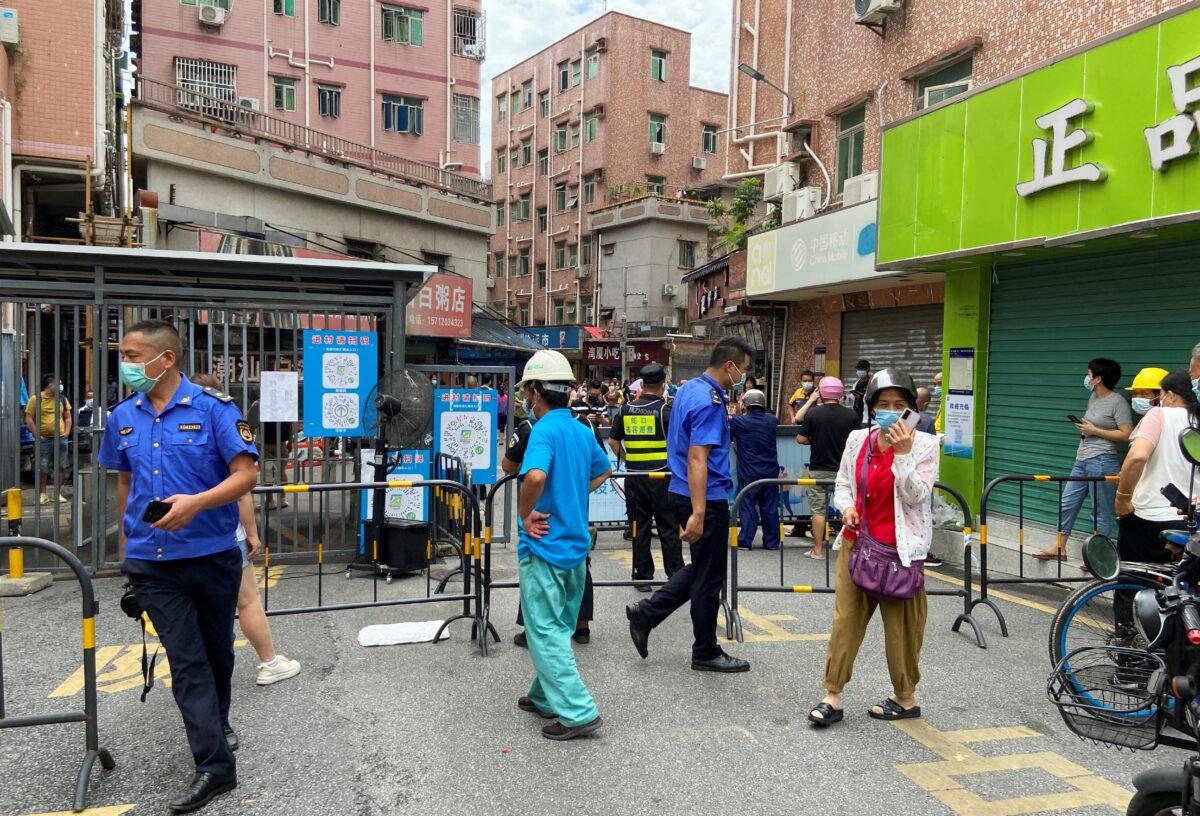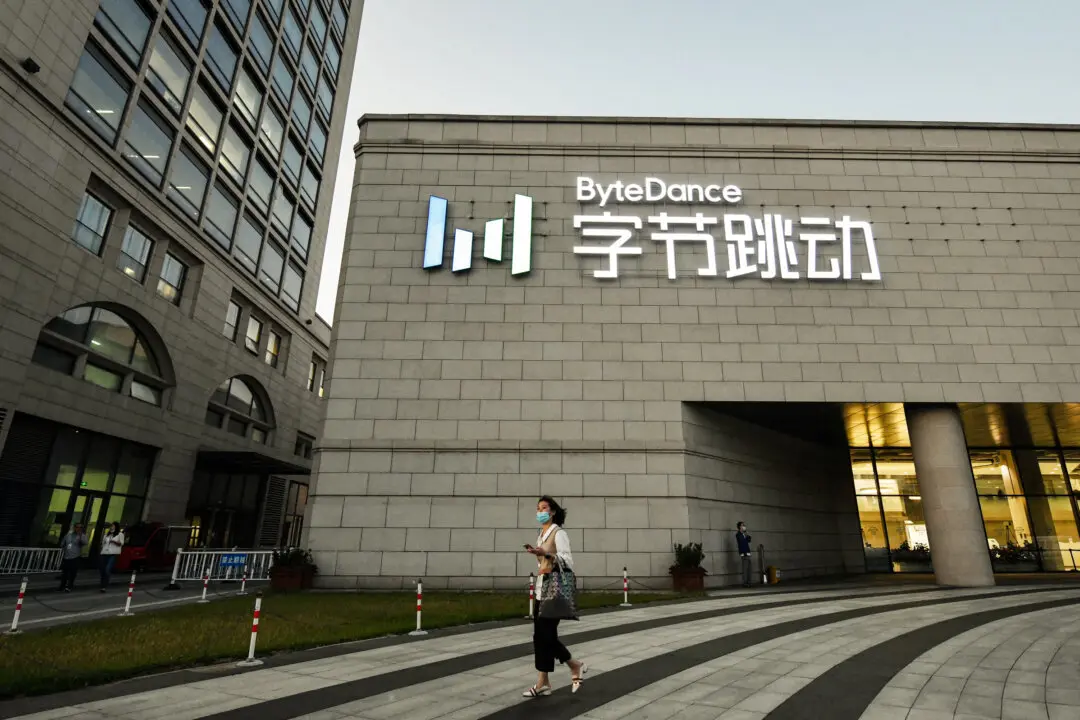The Chinese communist regime has held a rare central urban work conference, the fifth since 1962, amid a sluggish economy and a persisting unemployment crisis.
Observers said the regime’s “urban renewal” aims at maintaining its political stability in Chinese cities as well as stimulating the depressed real estate sector through mandatory measures. They remain skeptical of its effect.
The Central Urban Work Conference was held in Beijing from July 14 to July 15. Chinese Communist Party (CCP) leader Xi Jinping and other members of the Standing Committee of the CCP attended the meeting.
The meeting set the goal to make modern cities that are “innovative, livable, beautiful, resilient, culturally vibrant, and smart,” with a focus on pushing forward “urban renewal” and “the renovation of urban villages and dilapidated houses.” The meeting emphasized that “public security will be strengthened through holistic measures to effectively safeguard urban safety.”
Since the CCP established the communist regime–the People’s Republic of China—in mainland China in 1949, there have been only four national central urban work conferences held before this year’s meeting, in 1962, 1963, 1978, and 2015, respectively, according to state media.
In the 2015 meeting, the regime launched an urban villages, or shanty towns, redevelopment program to renovate 18 million urban village houses and 10.6 million rural dilapidated houses between 2015 and 2017.
However, due to insufficient compensation to the residents, it was often met with resistance, and government-forced demolition led to numerous protests and violent clashes. Many projects could not be completed as planned because of a lack of funding and local government debts and eventually became unfinished buildings.
This year’s plan’s core measure is still to target the urban villages and some old communities, which “is not much different from the last time in 2015,” Tang Jingyuan, a U.S.-based China affairs observer, told The Epoch Times on July 16.
Although the large-scale urban villages redevelopment from 2015 to 2017 drove up China’s gross domestic product (GDP), Tang said that “it also caused a very serious consequence, which is that local debt has increased sharply.”
“It has not been resolved to this day,” he said.
Real estate was once one of the main pillars of China’s economy, but it has been in crisis for five years, with major developers defaulting and local governments racking up massive amounts of debt.
Urban Renewal and ‘Low-End Population’
This year, the CCP still hopes to boost the GDP growth and to revitalize the real estate sector that has been in a serious crisis through this method, according to Tang.“Because real estate prices have been falling off a cliff, the entire real estate industry is on the verge of collapse. So the authorities may hope to forcibly redevelop the old urban areas and urban villages,” he said.
Tang warned that by doing so, the regime is “targeting the lower-middle-income groups in the cities through a compulsory deprivation of their housing rights.”
The little compensation that the Chinese regime has given to the residents to relocate them is usually not enough for them to buy a different apartment or residence in the city. Most of the residents in the urban villages or shanty towns are low-income groups. They have been driven to the outskirts or outside of the cities in the regime’s urban renewal programs over the years.

Among China’s urban poor, many are migrant workers.
In China, the term migrant workers refers to the large number of Chinese rural residents who have gone to the cities to look for work. They constitute a massive workforce in China’s economic development in the past few decades, especially in manufacturing and construction.
However, they don’t have urban household registration and therefore face significant challenges in the cities despite living in cities for many years, including limited access to social services and housing, discrimination, and difficulties in integrating into urban life.
According to official data, in 2024, China had a rural population of 477 million and about 300 million migrant workers.
In 2017, Beijing authorities launched a brutal campaign to eradicate the city’s “low-end population,” which consists mostly of migrant workers living in the urban villages. Tens of thousands of residents were forced out of their homes in the cold winter, and their homes were demolished.

In May 2020, China’s then-premier, Li Keqiang, said that China had “600 million people whose monthly income is only about 1,000 yuan,” which attracted attention to the mass poverty of the world’s second-largest economy. That amount roughly equals $139.
Since then, China’s economy has continued to worsen. In recent years, many factories have suspended production, and businesses have gone bankrupt as trade tensions continue with the United States and the European Union, which has led to a sharp decline in exports. It has also exacerbated China’s unemployment problem.
In the past few decades, the price of properties in China has increased by more than 10 times, independent current affairs commentator Cai Shenkun noted.
“Just as Premier Li Keqiang said, 600 million people have a monthly income of only 1,000 yuan, hardly any of them can afford to buy an apartment in China,” he told The Epoch Times on July 16.
One of the reasons for the CCP to hold the urban work meeting now is to maintain its regime’s stability as more Chinese are struggling in China’s sluggish economy, Yeh Yao-Yuan, a professor of political science and international studies at the University of St. Thomas, told The Epoch Times on July 16.

“The authorities are worried that the people may be dissatisfied with the central government and the CCP because of the poor economic situation. They are working on how to prevent such a problem from happening in major cities,” he said.
As to the effect of revitalizing the real estate sector and to drive up the economy, Yeh said that the core of the policy is empty words, which is “just a means of domestic propaganda.”
“The regime wants to deceive people with beautiful adjectives,” he said. “They don’t know what to do to solve the real estate crisis or stimulate the economy.”
Tang echoed that “the authorities no longer have any feasible way to solve the current real estate crisis and the predicament of the entire Chinese economy caused by the real estate crisis.” The new urban village redevelopment is much harder to finance in the current economic condition and will only drive up local government debt, he said.
Cai said that “the CCP has to develop real estate, because they know very well that if real estate collapses, China’s economy will basically collapse.”
“[However,] they have no means to drive up real estate now, or use land finance anymore, and the urban village redevelopment won’t work either, as they tried before and have already failed,” he said.






